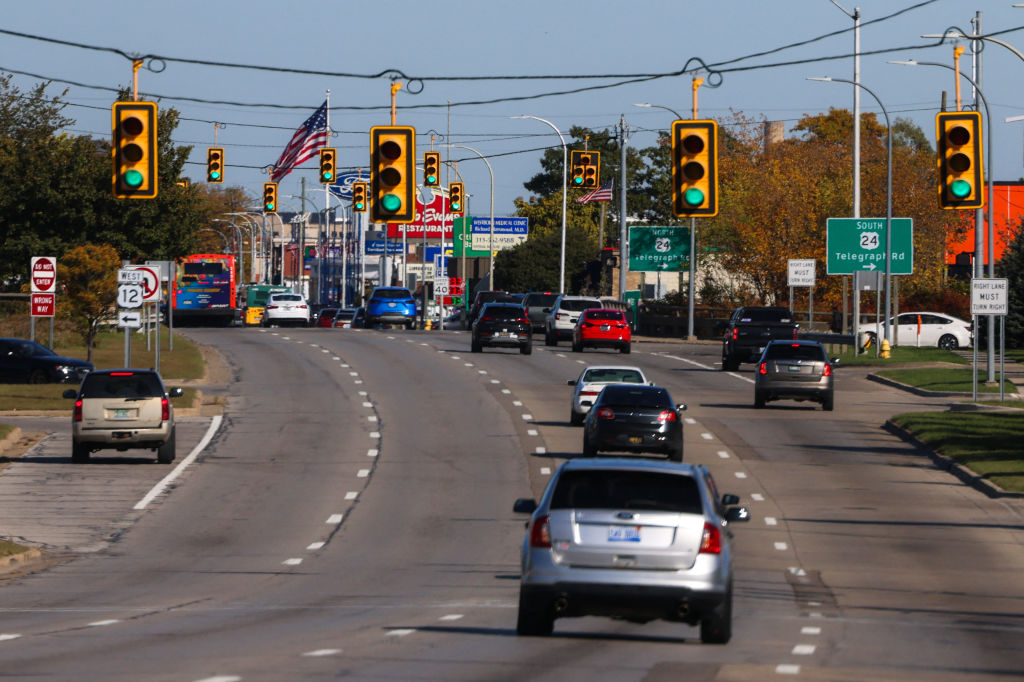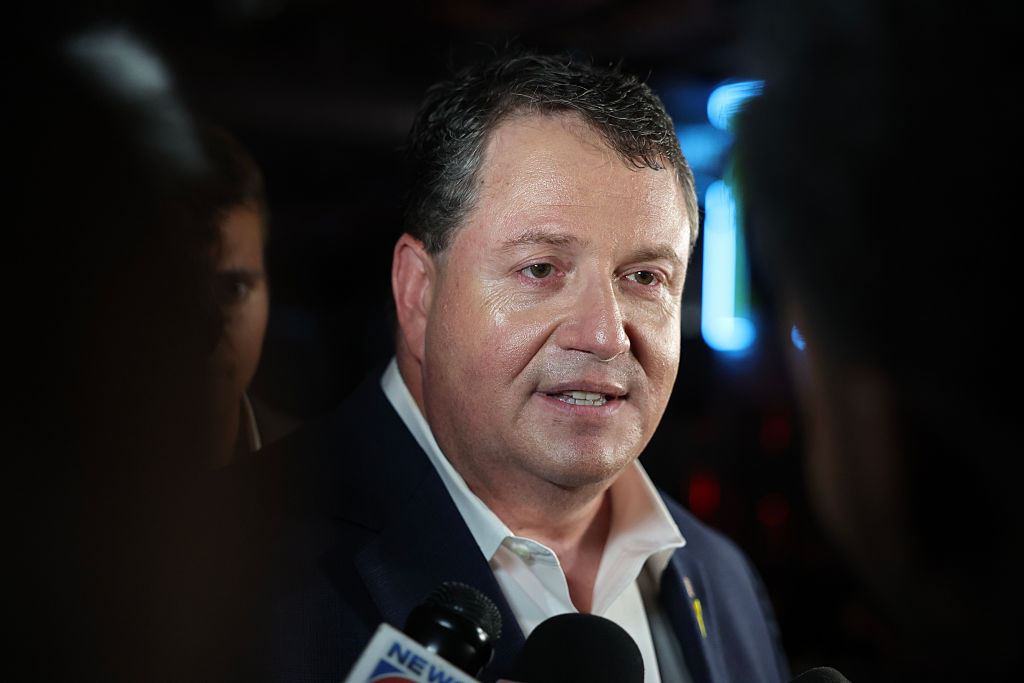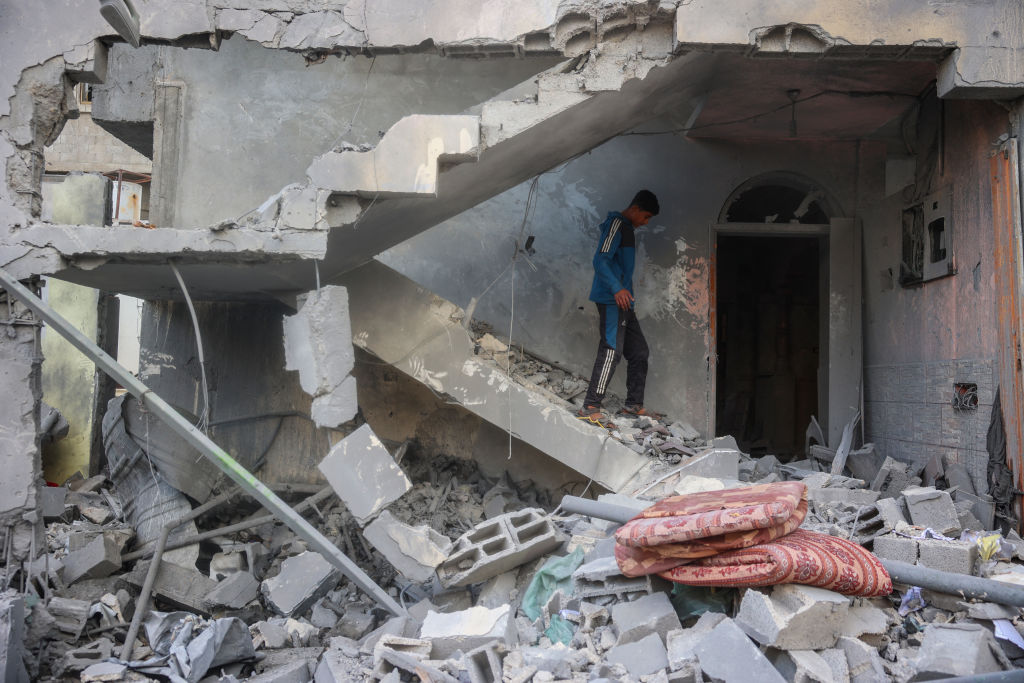Dearborn, Michigan
Leave Detroit and drive down Michigan Avenue, past the liquor stores, abandoned houses and weed-strewn fields; eventually you’ll hit Dearborn. You’ve undoubtedly read a lot about Dearborn these past few months, the Michigan city whose voters could sink Harris’s chances at the White House.
As you’ve been told, around 60 percent of Dearborn’s citizens are of Arab descent — it’s home to the largest mosque in the country and has the largest population of Muslims per capita in the United States. Overall, in Dearborn and in surrounding cities in Metro Detroit, the Arab-American community numbers over 200,000 people.
This poses a problem as activists have taken to the streets over the last year in protest of the Biden administration’s funding of Israel. The news lately has been bad for Harris. In early October, the Arab American PAC, one of the largest political organizations for Arab Americans in Michigan and whose endorsement has gone to Hilary Clinton and Joe Biden in the last two elections, decided they were unwilling choose between “the lesser of two evils.” Nationwide, Trump now holds a slim lead over Harris among Arab Americans according to an Arab News/YouGov poll, 45-43 percent.
In a state that Trump won in 2016 with a margin of just 11,000 votes, and where Biden won in 2020 with a margin of 154,000 votes, you can see how this region might scare Democrats. To put that into perspective, Barack Obama took Michigan by nearly 500,000 votes in 2012.
Trump, for his part, has taken advantage of the situation, granting interviews to a slew of Arabic media outlets through October, saying things like his “vision is peace and happiness” in the Middle East and indicating he would move to end the wars as soon as possible.
But there’s another part of Dearborn that’s also vexing Democrats and has been for at least the past eight years.
Keep driving past the Arabic restaurants, past the strip clubs, past the cutely designed downtown full of chain restaurants and millennial coffee shops, and you’ll come to the other half of Dearborn — what’s left of the blue-collar union voters that used to dominate this part of the state.
Before Dearborn became nationally known as “the home of the Arab-American vote,” it was renowned for something else: cars. As the home of the headquarters of Ford Motor Company, the city was once the seat of the American Dream for white, blue-collar workers who could support a family of four on a single income from an auto plant job.
As you keep driving down Michigan Avenue you’ll eventually come to Miller’s Bar. Housed in a boxy non-descriptive building, you might think nothing of it if you didn’t know any better. But if you’re from this area, you know better. Inside is a classic Midwestern bar, unchanged at least since my childhood and in business since 1941. Miller’s is the type of bar that used to be commonplace, where workers from the nearby plants would stop in after their shift for a burger, cold beer and a little camaraderie before heading back to the family. It now has the distinction of being one of the best burgers in metro Detroit.
Dropped ceilings, a long bar on one side and a strip of booths on the other with a row of tables down the center. It’s quiet at lunchtime — no music, just the hum of discussion from the patrons. A mix of blue- and white-collar workers with badges hanging from their belts stop in for a burger and drink, a few old-timers hang out in the booths for a leisurely lunch.
There’s no menu. No one’s really sure what they can make outside of burgers and fries, so you just ask. I did overhear someone order a patty melt. The burger is served on parchment paper, no plates. A raw onion accompanies it on another piece of parchment paper. The pickles come in a small Ziploc bag. The burger is perfect. The American cheese is barely melted over the rare burger but the grease from the burger has taken hold into the soft bun — and somehow it’s just as it should be. No credit cards here, cash only. It’s on the honor system — just tell the bartender what you had.
As I’m leaving, I talk to some of the folks at the bar about the election. They seem disinterested, but signal they’ll be voting for Trump whether they like it or not. The bartender suggests the same, but I get the sense no one is really interested in talking politics. They’ve had enough.
I walk out, satisfied. Both by the burger and that places like this still exist.
While the Arab-American vote could sink Harris, it’s here, and cities like it all across Michigan, where the election will more likely be decided. There are over 1.1 million people in Michigan who earn their living, in some form or another, from cars. That doesn’t count the second- and third-order businesses that rely on the auto industry workers, like Miller’s Bar.
While the AFL-CIO has endorsed Harris, the Teamsters declined to make an endorsement. Among the rank-and-file union worker, the facts start to look worse for Harris. Biden won in 2020 by a sixteen-point margin over Trump. This year, support for Harris is markedly down from there — one recent poll showed her lead cut to a mere six points.
I left Dearborn to meet some friends for dinner in Birmingham, a wealthy suburb about seven miles down Woodward Avenue from downtown Detroit. Four years ago, eight years ago, nary a Trump sign could be found in these parts. Now, I’m inundated by them — beautiful, old Tudor-style mansions with Trump “Never Surrender!” yard signs proudly and prominently displayed. I ask some of the locals if my memory was just off and the area was always this Trumpy. “No. And now no one is afraid to show support for him anymore,” came the response.
With the polls showing Michigan tied at 48-48, Democrats might be in for a rude awakening come November.


























Leave a Reply